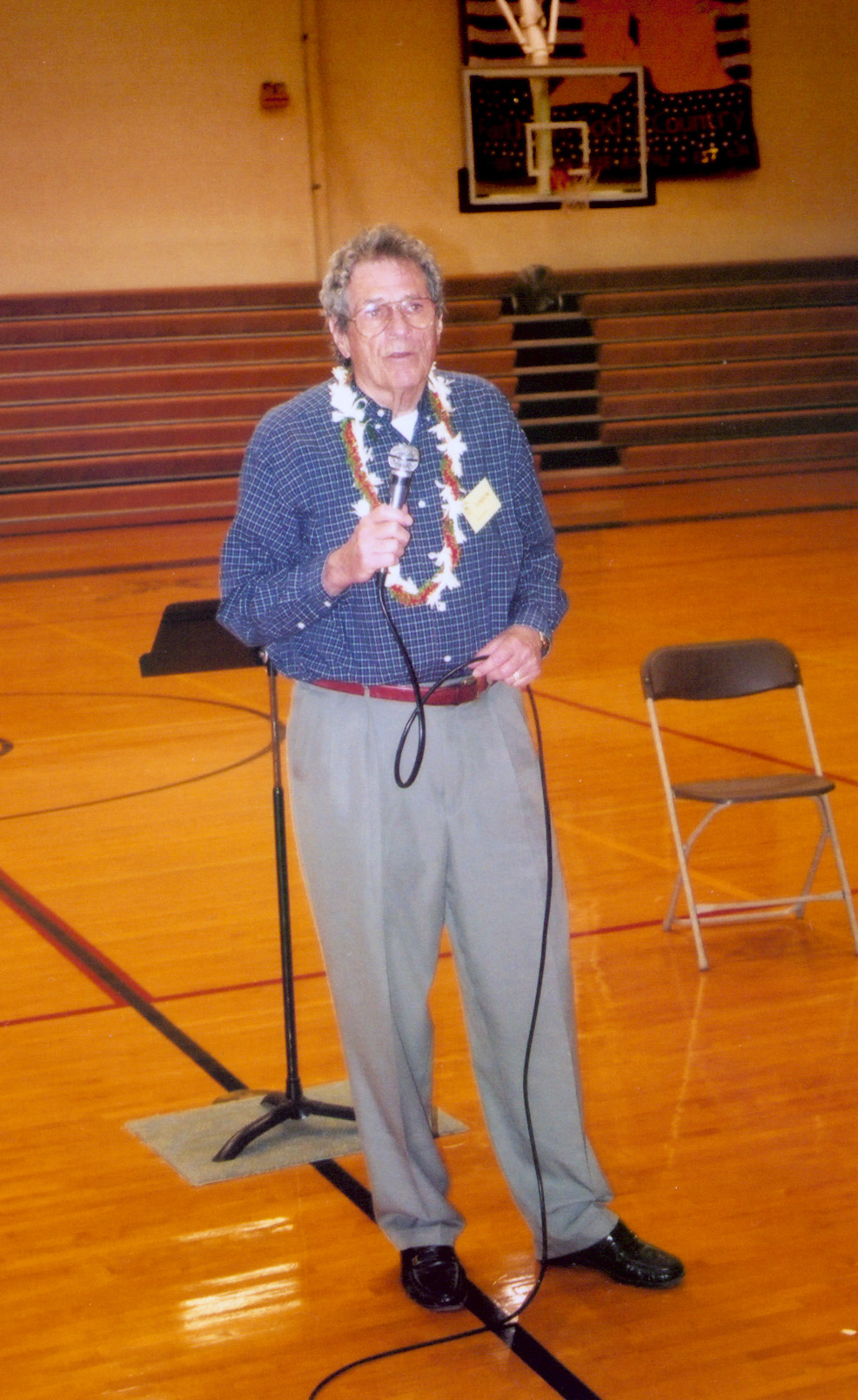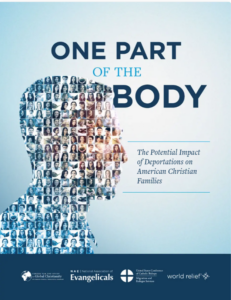
HONOLULU (BP)–A crystal methamphetamine pipe and two cans of beer left at the front of a church in Hawaii during an altar call underscored the sermon the congregation had just heard: Substance abuse problems are not far from the church, which holds the key to true healing.
“One of the things that has been reconfirmed on this trip is that the drug problem knows no boundaries, and here in the islands, like on the mainland, it touches nearly every family,” said Ted Stone, an ordained Southern Baptist minister who won his personal battle with substance abuse and has committed his life to helping others do the same.
Stone of Durham, N.C., and his ministry associate, Philip Barber of Dallas, brought their message of hope and healing to Hawaii March 10-17 during speaking engagements at Oahu churches and schools.
Each time Stone spoke he reminded his listeners, “I used to be a drug addict, but I am no longer a drug addict. I used to be a recovering individual, but I am no longer recovering. I am recovered forever by the grace of God, and this hope can also belong to you and those whom you love.”
At Sunday morning worship services at Nuuanu Baptist Church March 17 and at The Gospel Lighthouse in Ewa Beach March 10, Stone and Barber ended their messages by asking worshipers to come forward to pray if they have substance abuse problems or know someone who has. The responses at both churches were overwhelming as the front areas of the sanctuaries were filled with praying, weeping people.
A man who came forward at Nuuanu left the pipe and beer. Stone said other than a 1980s speaking engagement in Florida when someone left a bag of marijuana in a pew, he had never seen anything like it. It showed, he noted, that the problem is not outside the church walls.
“We don’t take the lives of drug addicts seriously,” Nuuanu pastor Rick Lazor said. “We think it’s somebody else’s problem. The church has got to be more involved in the lives of people.”
The message came to the church the same week that a relative of a church member had been killed in a drug-related shooting and another member had been hospitalized after overdosing on drugs. The week’s events and Sunday’s message reinforced an important lesson for the church: “We don’t think we can make a difference, but we can make a difference because we have Jesus,” said Lazor, a member of the SBC Executive Committee.
Stone agreed, saying, “If we truly believe that Jesus holds the final answer, then Christians ought to be providing the leadership in dealing with this problem.”
At The Gospel Lighthouse, Stone and Barber spoke to a congregation that meets in an area where illegal drug activity is widespread. A recently baptized member was a drug abuser and seller who had just been released from prison. Another member spoke of growing up with a father who sold marijuana.
With their frankness about their struggles, Stone and Barber touched people’s hearts, said Bill Sanders, The Gospel Lighthouse’s pastor. As most of the congregation came forward, Stone and Barber moved among the people praying and counseling with them.
“His preaching started a revival in our church a week early,” added Sanders, referring to revival services planned for the following weekend.
Hawaii Baptist Academy intermediate and high school students heard how a young Christian boy from a good family became a Southern Baptist pastor and later a drug addict and convicted felon. Stone told the students at two March 11 chapels that the seductive power of worldly success caused him to leave the pastorate and pursue a business career.
Initially, amphetamines were a way to keep up the superhuman pace he had set for himself. The good feelings proved deceptive. Soon he was addicted, and the powerful effects of “speed” led to a crime spree that included armed robberies and attempted murder.
During his four years in prison, Stone said, he went cold turkey to kick his drug addiction, a painful process that took about two years.
“You’re lucky if you ever get back,” he said. “If you do, it’s a long, hard walk.”
Stone’s faith in God also began to strengthen. “If there were any way I could back up and erase my mistakes, I’d do it in a heartbeat,” he said. “But you can’t. All you can do is do the best with what’s left. At the time of my release from prison in 1976, I promised God that I would live for him, and even die for him if he required that. Philip and I have been to the gates of hell, and we can never, never repay our Lord for our second chances.”
Stone’s best has been devoting the past 25 years to giving substance abusers hope and encouraging and equipping Christians to minister to them. He has held substance abuse conferences, spoken at thousands of churches and schools, written two books with Barber, and walked across the U.S. mainland three times. In 1996 and 1998 he walked coast to coast, and in 2000 he walked south to north. Averaging about 25 miles a day, Stone, a Southwestern Baptist Theological Seminary trustee, always carries an American flag in his hand and “the gospel of Jesus” in his heart.
During his 1998 walk, Stone stopped at the annual SBC meeting in Salt Lake City to present a motion to create a drug abuse task force for Southern Baptists.
His walks have brought media coverage to the U.S. illegal and legal drug abuse problem and have allowed him to meet with hundreds of thousands of people, including governors and mayors. In the past couple of years, he has collected nearly 500,000 signatures from people vowing to live lives of sobriety and self-control.
Barber, a Southwestern student, told the HBA students about the “stupid things” he had done, counseling them to learn from his mistakes. He told the students that drugs often temporarily make people feel good, but the cost is too high.
“I’m here to tell you that it’s not worth it,” he said.
Barber recounted the time when he was shaking so much that he couldn’t even inject himself with heroin. On that day, he said, he remembered the first marijuana joint he had smoked and how his life had spiraled downward since. Although he has left drug addiction behind, he told the students that he is “scarred for life.”
“God will forgive you for everything you do,” Barber said, “but he’s not going to take away the consequences.”
After the chapel, Barber noted that adults too often send false or contradictory messages to their children, especially with regard to the abuse of prescription drugs.
“‘Don’t do drugs, take your medicine,’ they say,” Barber observed. “‘Don’t do heroin, drink beer. Don’t smoke weed, take anti-depressants. Don’t take their drugs, take our drugs.'”
Stone added, “Parents warn their children not to do drugs, while they explain away their beer by saying, ‘It’s our way to relax,’ or their abuse of tranquilizers by saying, ‘It’s the only way to keep from being nervous.’
“If you’re well, you don’t need medicine, but [people] think a pill will take away every problem or erase every unpleasant feeling,” he said.
Stone and Barber also spoke at a coffee hour for pastors at First Southern Baptist Church of Pearl Harbor March 15. “Ted and Philip helped pastors recognize the importance of making their congregations aware of the problems and dialogued with pastors on how to best minister to substance abusers,” said O.W. Efurd, executive director of the Hawaii Pacific Baptist Convention. Stone and Barber also spoke at James Campbell High School in Ewa Beach and Wayland Baptist University’s Hawaii campus.
Stone is already talking about a return visit to the islands, including perhaps a walk around Oahu. Efurd said some pastors had already said they would be open to a substance abuse conference.
While most visitors only see the beauty of the islands, Stone and Barber saw something more.
“It seems like paradise,” Stone said, “until you look around and see that the same drug problem eating away at people on the mainland is causing so much pain and tragedy here in the islands.”
Said Barber, “I thank God that I have seen churches here with doors open to those who hurt.”
–30–
(BP) photos posted in the BP Photo Library at https://www.bpnews.net. Photo titles: PASTOR TO FELON and HEART FOR HAWAII.














